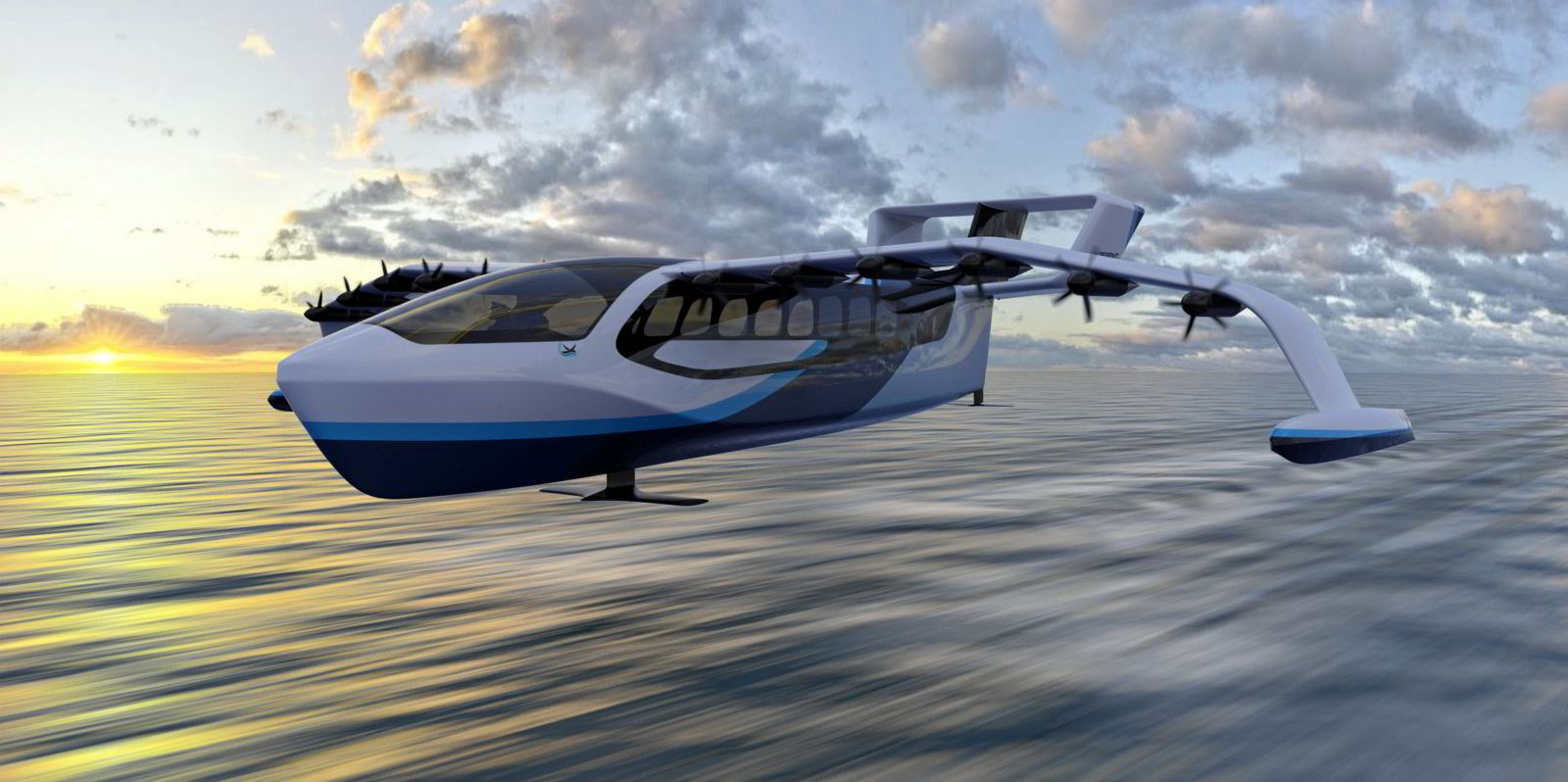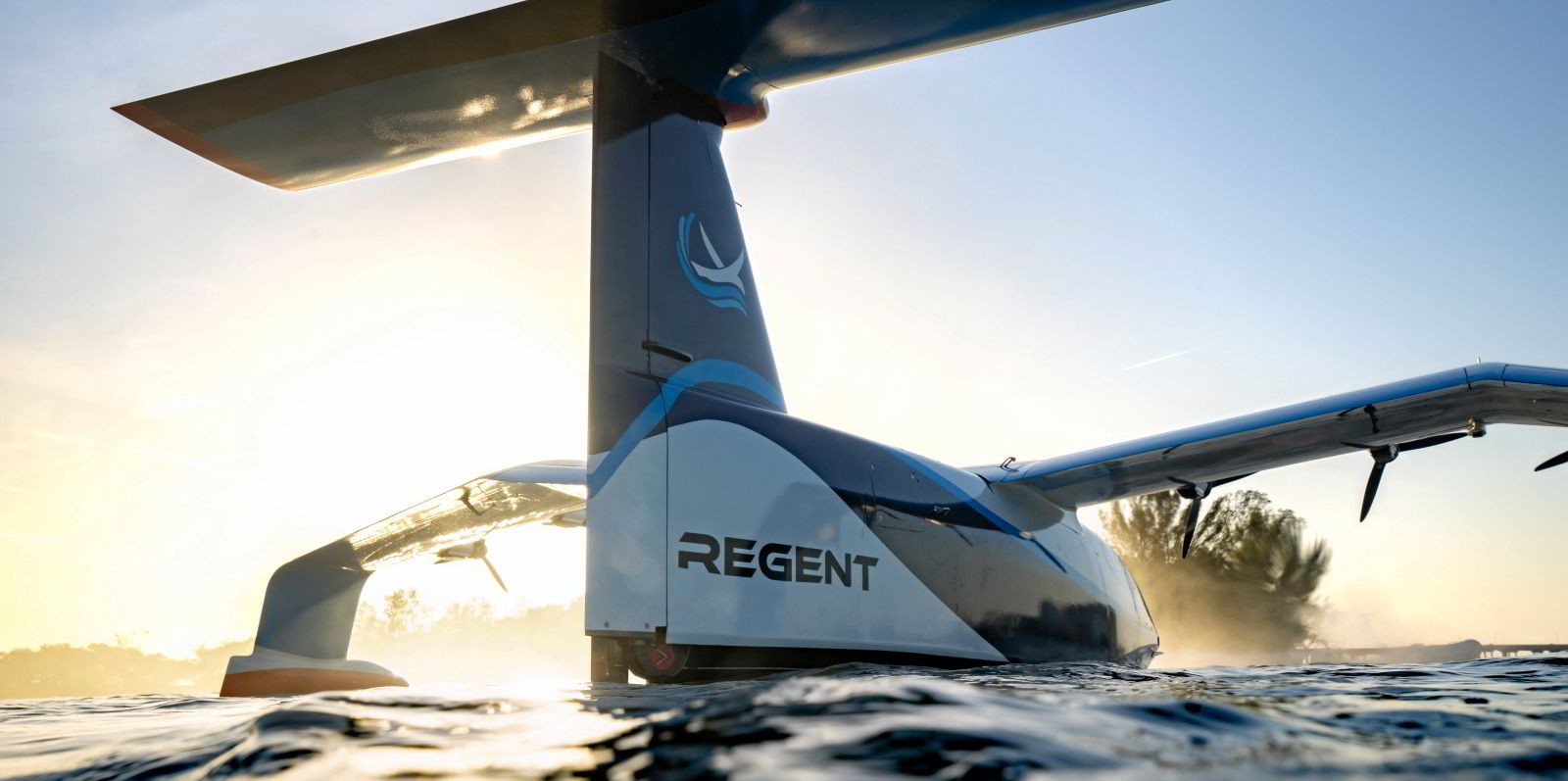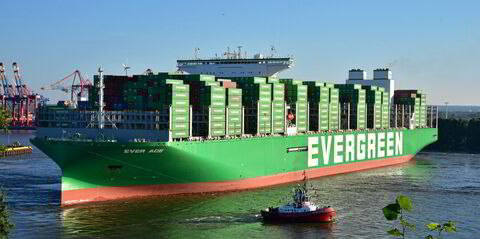Ferries could start to fly by the end of this year after classification society Lloyd’s Register signed on to certify a unique, zero-emissions vessel under construction by US start-up Regent.
The Rhode Island-based company’s chief executive, Billy Thalheimer, said the first human test flight of the Viceroy is planned by the end of 2024, with production of the first commercial version of the all-electric vessel planned for mid-decade.
“We’re moving very quickly, but also safely,” Thalheimer told TradeWinds.

As TradeWinds has reported, the so-called wing-in-ground effect vehicle, or WiG, will float out from port, then hydrofoil and then hover over water — but not high enough to be considered an aeroplane.
And since they are still, technically vessels, they will need approval from a maritime classification society.
Enter Lloyd’s Register. The UK classification society has agreed to provide certification and advisory services for the Viceroy, a 12-passenger vessel that has been described as a flying ferry.
The goal of the seagliders is to operate at aircraft speeds of up to 290 km per hour, with the lower operating costs of the maritime world.
Lloyd’s Register’s chief operating officer, Mark Darley, said the classification society is excited to join Regent to set certification standards for this novel maritime technology.
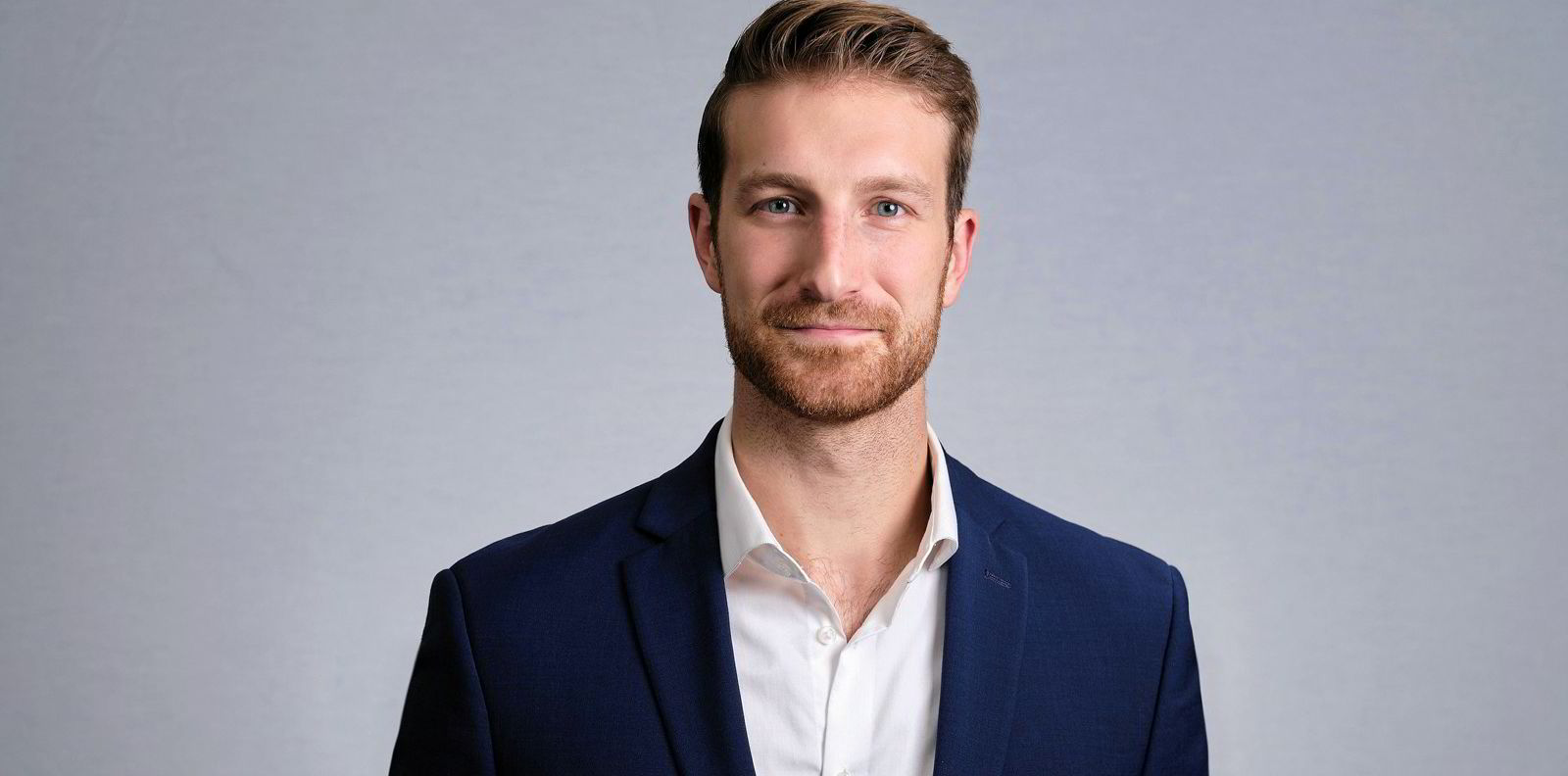
“Regent’s dedication to safe and sustainable solutions is providing the maritime industry with innovative zero-emissions passenger vessel seagliders that could transform the future of coastal travel,” he said in a statement.
Rival Bureau Veritas has also been involved in the project, providing approval-in-principal for the Viceroy in 2022.
Thalheimer said classification society approval is key to bringing the Viceroy to international markets, although Lloyd’s Register will also work with Regent to obtain US Coast Guard approval for its initial operation in the US.
“Lloyd’s is also making an investment in Regent in bringing this new technology through to fruition,” the chief executive said.
Although they fly above the surface of the water, some types of WiGs are maritime vessels from a regulatory standpoint.
In the US, for example, they are covered by the Coast Guard rather than the Federal Aviation Administration.
Globally, they are regulated by the International Maritime Organization rather than the International Civil Aviation Organization.
The Viceroys will remain less than a wingspan above the water and will be operated by mariners rather than pilots.
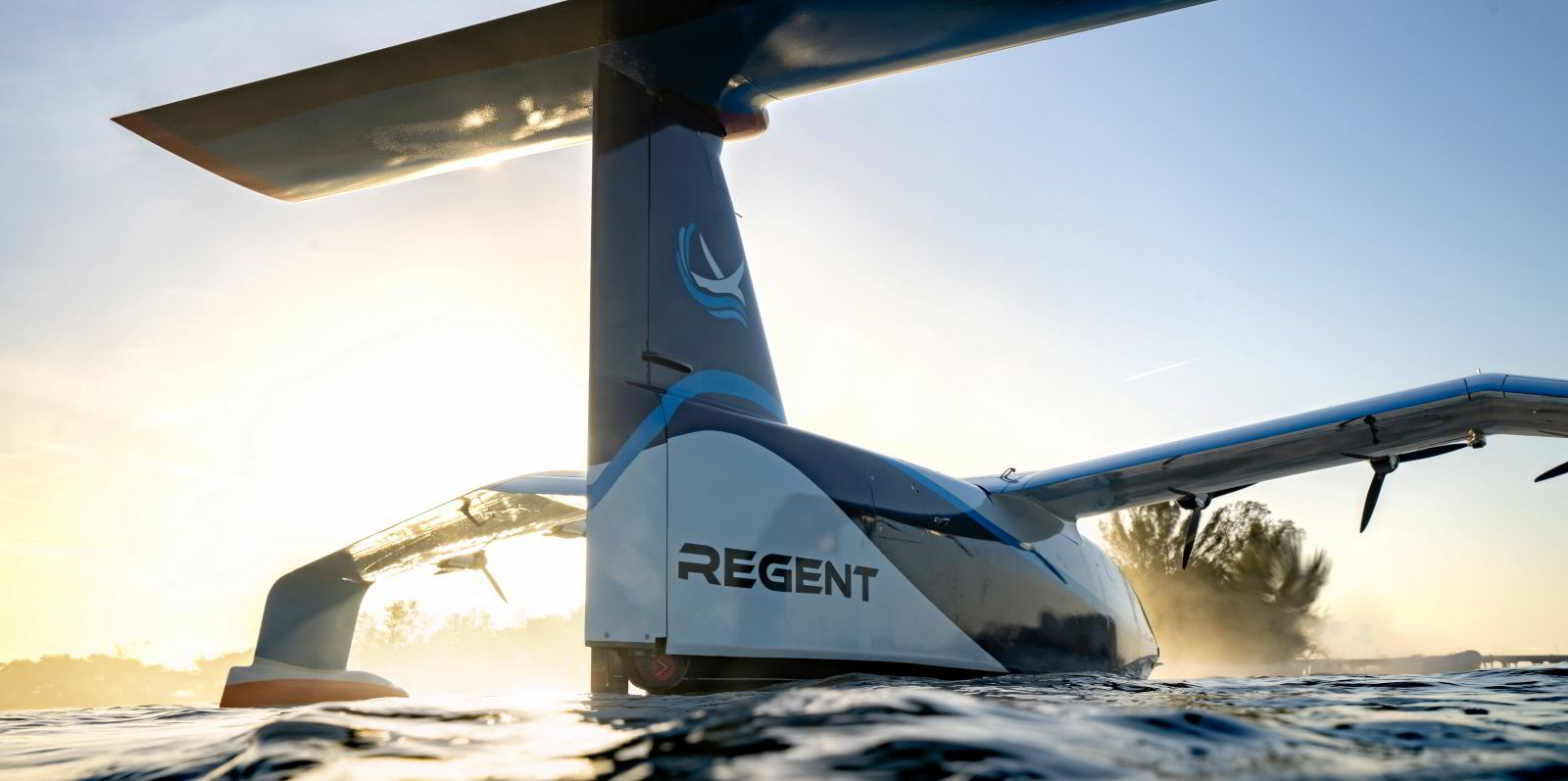
“We have really changed the control system to be more akin to a vessel,” he said.
“Even though you’re 15 or 30 feet in the air, you’re still going left, right, fast, slow — entirely two dimensional — and avoiding the water traffic.”
The prototype of the Viceroy, which is expected to travel 290 km (180 miles) on a single charge, is under construction as a combination of aircraft and boat builders build components that will be put together at Regent’s Rhode Island headquarters.
Regent is also planning a 100-passenger Monarch, which Thalheimer expects on the water by the end of the decade.
“The great thing about Monarch is that we can still make it work with existing battery technology,” the chief executive said.
“We’re obviously expecting battery technology to mature and improve significantly over the remaining half of the decade.”
Under the current design, the Monarch is expected to travel 350 km on a single charge.
The company claims to have secured orders for more than 600 seagliders valued at over $9bn from both ferry operators and airlines.
Vessel operating customers include France’s Brittany Ferries, Germany’s FRS and Italy’s Alilauro.
Regent is also gearing up to announce orders from traditional shipping companies and maritime conglomerates, Thalheimer said.
He said the customers are looking at Viceroy and Monarch as a way to augment their existing services in markets where fast ferries are already competing with airlines.
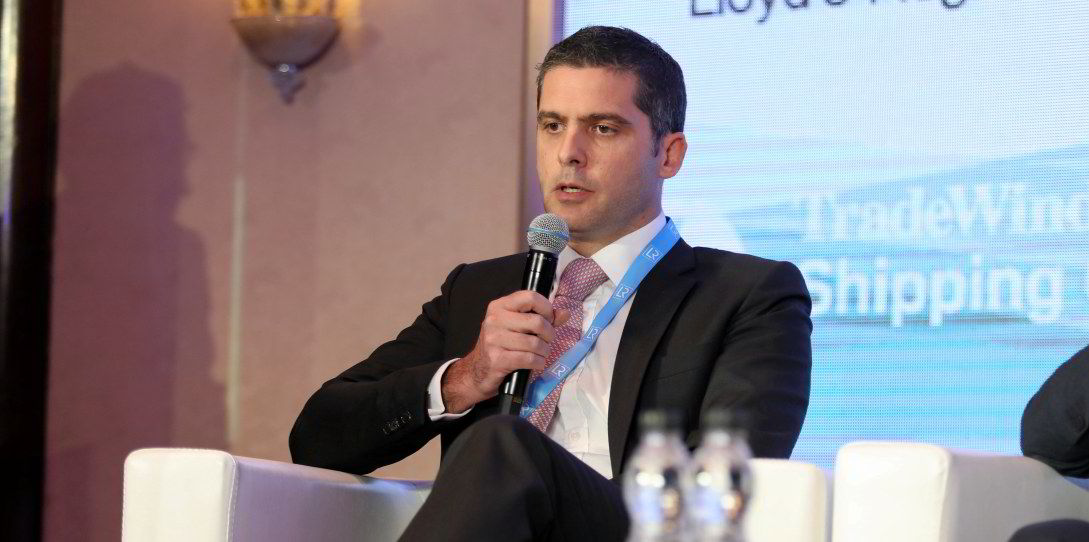
“You can undercut the airlines or you can charge what the airlines are charging and take all of that as margin and have zero emissions, which not only supports a lot of these companies’ sustainable mandates but also can represent tax credits to the operator,” the chief executive explained.
The company has raised more than $90m from investors including 8090 Industries, Founders Fund, Japan Airlines and Lockheed Martin.
_________
Start-up seeks to shake up short sea shipping — 16 containers at a time
A Munich-based tech start-up wants to revolutionise shortsea shipping —16 containers at a time, as Craig Eason writes.
Cargokite has emerged from a technical university in the German city and secured venture capital funding to develop a concept of radically changing shortsea shipping with a series of small hydrofoiled, autonomous, diesel-electric vessels with a 200-square-metre kite.
They call it micro-shipping, and it goes beyond the single unit, with the company promoting the idea that a fleet of these concept vessels can beat small feeder container ships.
“On a total cost of ownership, we can replace one 800-teu, methanol-powered feeder container ship with less than 16 Cargokite vessels working on a mesh-like network,” said Cofounder and chief technology officer Tim Linnenweber.
_________
Tanker ships out NYK’s first cargo of sustainable jet fuel
NYK Group has begun to transport its first cargo of sustainable aviation fuel, Gary Dixon writes.
The Japanese shipping giant said its NYK Bulkship (Asia) operation loaded an MR tanker in Singapore for a journey to the ports of Los Angeles and San Francisco.
The unnamed vessel left on 25 May. The fuel is produced by Finland’s Neste Oil, the world’s leading producer of sustainable fuels.
________
Vote of confidence: Constantine Logothetis boosts stake in fuel tech operation
Greek investor Constantine Logothetis has once again increased his stake in UK-listed fuel additives group SulNOx, as Gary Dixon reports.
His latest share purchases have taken his holding to 24.1%.
Logothetis first bought into SulNOx last June, adding more stock in September and January.
